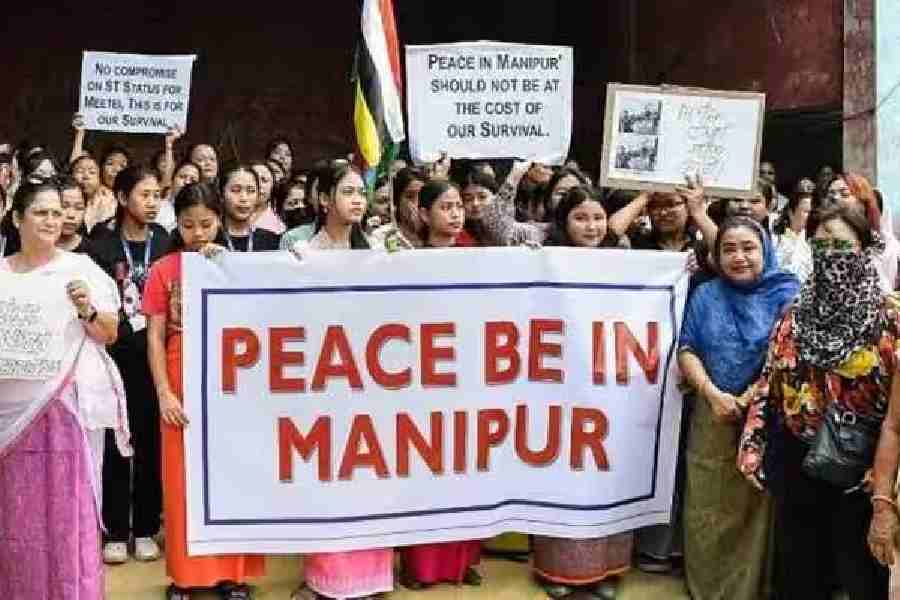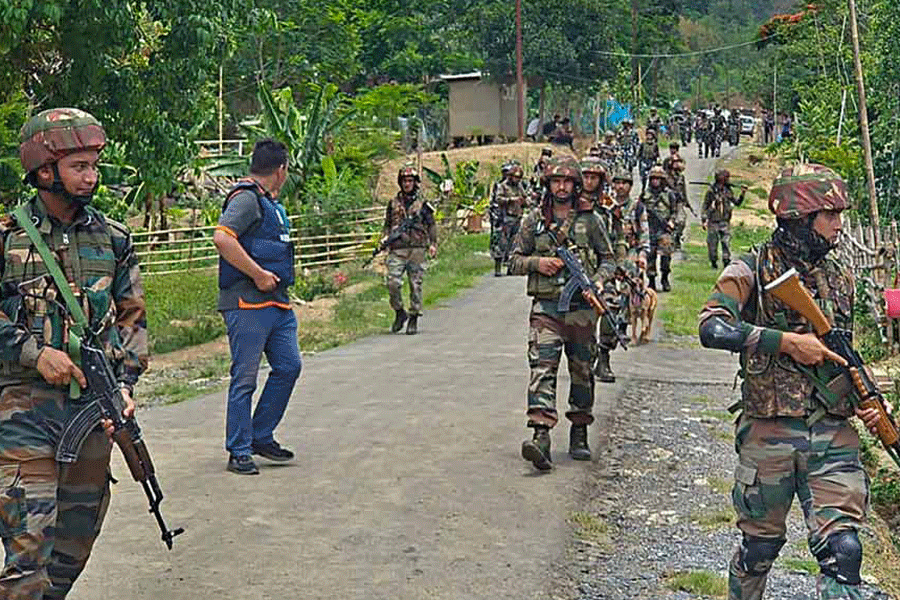The Kuki Inpi Manipur (KIM), the apex body of all Kuki tribes in the northeastern state, has “explicitly” specified that its demand for a separate administration means a new state under Article 3 of the Indian Constitution.
KIM general secretary Khaikhohauh Gangte said in a media statement issued on Thursday that the decision for a state was taken on July 12.
“Following its (KIM’s) crucial cabinet meeting on July 12, 2023, and the Executive Decision taken thereof, the Kuki Inpi Manipur explicitly stated its demand for separate administration in the form of separate State under Art. 3 of the Indian Constitution...,” Gangte said.
Under Article 3, Parliament can form a new state by separating territory from any state or by uniting two or more states or parts of states or by uniting any territory to a part of any state.
In the media statement, Gangte said the rationale behind the demand, among others, is the “hounding” of “all” the Kukis from the Imphal Valley after “burning down their colonies/settlements and churches.”
Although Kuki-Zo organisations have been firm on their demand for a separate administration since clashes broke out between the Meitei and Kuki communities on May 3, till now none had specified that a new state is the solution for lasting peace in the volatile state.
“Kuki Inpi Manipur is the first to do so.... Other Kuki-Zo organisations have not done so as yet. We have mentioned the reasons/rationale for a state in our press communique,” Janghaolun Haokip, secretary, information and publicity, KIM, told The Telegraph.
Meitei organisations have vehemently opposed any kind of separate administration or tinkering with the state’s territorial integrity.
The Kuki-Zo people have maintained they can no longer live with the Meitei people in the Imphal valley while blaming the state administration, headed by chief minister and BJP leader N. Biren Singh for the ongoing unrest that has till now claimed at least 150 lives and displaced 60,000 people.
Tribes such as the Kuki, Chin, Zomi and Mizo are also referred to as the Zo tribes or the Zo people because they share the same ancestry, culture and history.
Gangte, the KIM general secretary, said the scale and intensity of the “institutionalised violence” reached catastrophic proportion wherein “even our” elected representatives are not spared, let alone bureaucrats and police officers (central and state services), showing that the “ever-widening differences between the Kukis and the Meiteis remain irreconcilable”.
The KIM also touched upon certain acts dealing with protected forest and reserved forest that have been “forcibly imposed in our land — the abode of our forefathers — since time immemorial”.
“This clearly indicates that not only could we not live and settle in the state capital (Imphal)... the very existence of the Kukis as a people remain threatened,” Gangte said.
The majority Meitei, mostly Hindus, live in the six valley districts while the Kuki and Naga tribes, mostly Christians, reside in the 10 hill districts.
“As a matter of fact, demographical/geographical separation has come into effect now. It is therefore, pertinent on the part of the central government to expedite separate administration in the form of creation of a new state under Art.3 of the Indian Constitution for lasting peace in the region,” Gangte said.
Gangte added that the Kukis shall “continue” to strive together “with sweat and blood to protect our rights and liberties until our political demand is realised in the form of Separate State”.












